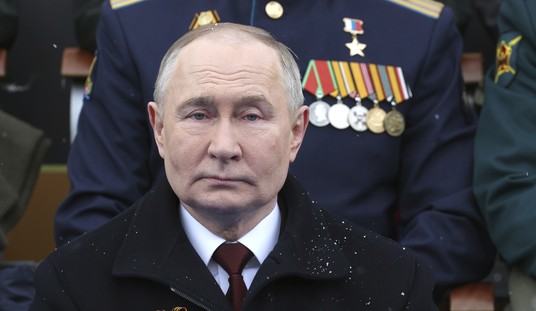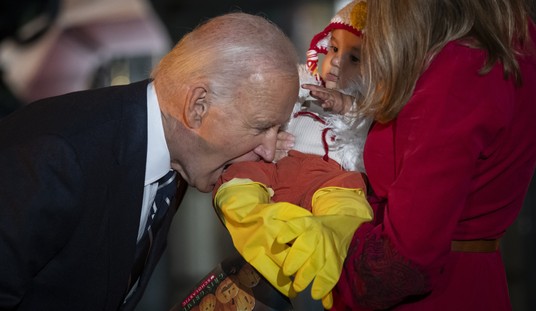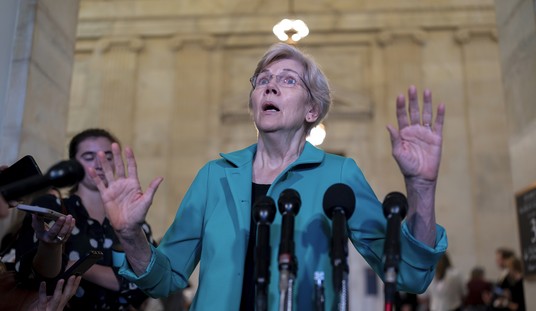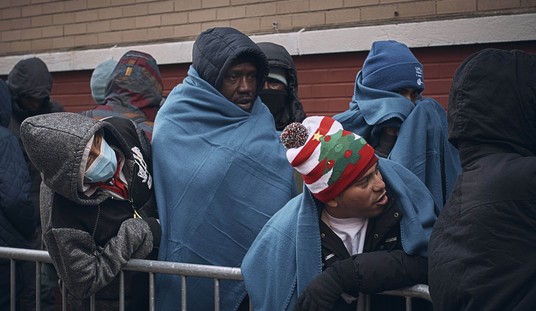Last week, at House Speaker John Boehner’s (R-OH) request, the Obama administration provided a brief (32 pages plus classified addenda) overview of its activities in Libya, its conversations with Congress about them, and its rationale for not needing Congressional approval to continue this war ad infinitem. The full document (minus the classified annexes) is available here in pdf form. Here are a few highlights.
1. The document begins on a comical note, claiming that “In his address to the nation on Libya on March 28, 2011, President Obama presented a comprehensive explanation for why he authorized military action” in Libya. Recall that this address came nine days after he began taking out Libyan air defenses and command and control nodes with Tomahawks (TLAMs) and Suppression of Enemy Air Defenses (SEAD) sorties — as well as the fact that there’s been nothing clear or “comprehensive” about Obama’s few mentions of Libya and the U.S. war there.
2. Again, as we all know, the specific purpose of our activity in Libya has still not been made clear to the American public. Is it to remove Qaddafi (an aim that is conspicuously absent from the UN resolution itself)? Is it to “protect civilians”? If the latter, as I’ve written many times here, then conducting an air-only offensive is a terrible way of going about it. Multiple episodes of civilian deaths by coalition ordnance in Libya have only reinforced the inability of aircraft to segment a battlefield and prosecute a war that is being waged to prevent death and destruction, particularly without forward observers in place on the ground to assist in that battlefield segmentation and the identification of targets. In an urban environment, when the battlefield contains an often indistinguishable mix of soldiers, opposition fighters, and civilians, this becomes an infinitely greater concern. Unfortunately, neither Obama nor his NATO coalition has recognized and acted on this simple reality.
Interestingly, the Obama administration’s missive to Congress does not set Qaddafi’s removal as the only acceptable outcome of the war in Libya, either. On page 3, it acknowledges that “the President has stated that Qadhafi has lost all legitimacy to rule and must step down,” and that “his brutal behavior against his own population has been catalogued by a United Nations Commission of Inquiry and has resulted in a request for arrest warrants by the Prosecutor of the International Criminal Court for crimes against humanity.” Additionally, page 4 states that:
A growing chorus of international voices has now called for Qadhafi’s departure, including the G8, the Contact Group representing more than 20 countries, Russian President Medvedev, Turkish Prime Minister Erdogan, and several key African leaders such as the Presidents of Gabon, Mauritania, and Senegal. This growing consensus and Qadhafi’s control of less and less of Libya indicate that his departure is only a matter of time.
However, the threefold purpose of the U.S. military’s action in Libya, which is repeated several times throughout the document, does not include this at all. Instead, it says that the purpose of U.S. hostilities, and the requirements for their cessation, are:
- That all attacks against civilians must stop;
- That Qaddafi stop his troops from advancing on Benghazi, pull them back from Ajdabiya, Misrata, and Zawiya and other cities, and establish water, electricity and gas supplies to all areas; and
- That humanitarian assistance be allowed to reach the people of Libya.
While the Obama administration’s document calls Qaddafi’s “departure” a “critical component” of the achievement of these objectives (p. 7), these requirements in and of themselves, like the UN resolution that spawned them, do not mandate a permanent change in Libya’s political leadership. Further, part of the administration’s rationale for not requiring Congressional approval to continue its hostilities as long as it sees fit is the claim that U.S. efforts are limited to actions which do not include offensive operations against the government or active efforts at regime change. This is from page 25 (emphasis added; more on the claim that Congressional approval is unnecessary can be found below):
U.S. forces are playing a constrained and supporting role in a multinational coalition, whose operations are both legitimated by and limited to the terms of a United Nations Security Council Resolution that authorizes the use of force solely to protect civilians and civilian populated areas under attack or threat of attack and to enforce a no-fly zone and an arms embargo.
3. It is as ironic as it is unsurprising that a key part of Obama’s argument for continuing his inept, ineffective, unauthorized offensive in Libya is the claim that somehow, walking away would do more damage to America’s, NATO’s, and the UN’s credibility than has already been done. The relevant sections of this document read as follows. From page 3:
[T]he longstanding U.S. commitment to maintaining the credibility of the United Nations Security Council and the effectiveness of its actions to promote international peace and security was at stake in Libya once the Council took action to impose a no-fly zone and to authorize all necessary measures to protect civilians and civilian populated areas under threat of attack, particularly after Qadhafi’s forces ignored the UNSC’s call for a cease fire and for the cessation of attacks on civilians.
As President Obama noted in his March 28 speech, without military action to stop Qadhafi’s repression, “[t]he writ of the United Nations Security Council would have been shown to be little more than empty words, crippling that institution’s future credibility to uphold global peace and security.”
And from page 13:
If the United States military were to cease its participation in the NATO operation, it would seriously degrade the coalition’s ability to execute and sustain its operation designed to protect Libyan civilians and to enforce the no-fly zone and the arms embargo, as authorized under UNSCR 1973. Cessation of U.S. military activities in support of OUP would also significantly increase the level of risk for the remaining Allied and coalition forces conducting the operation, which in turn would likely lead to the withdrawal of other NATO and coalition nation participation in the operation. Furthermore, if NATO had to terminate the operation before the recently agreed 90-day extension (to September 27) because it did not possess the assets and capabilities required to conduct or sustain the operation, then NATO’s credibility would be damaged with significant consequences for U.S., European, and global security.
In brief, an endless military operation (which has seen the president’s claim of “days, not weeks” turn into months) with a nebulous objective can’t be halted because admitting a failure to accomplish that mysterious objective and leaving would harm America’s, NATO’s, and the UN’s credibility far more than failing to accomplish that objective while trying harder and harder, and spending more and more time and money, to do so. Wrap your brain around that, why don’t you.
4. And, a quick note on the possible participation of extremists and terrorists in the Transitional National Council, which (naturally) takes its information from public statements and press reports:
We are not aware of any direct relationship between the TNC and al-Qaeda, Hezbollah, the Libya Islamic Fighting Group (LIFG) or any other terrorist organization. There are reports that former members of the LIFG, which had been initially formed as an anti-Qadhafi group, are present in Eastern Libyan and that some of them were fighting with opposition forces on the front lines against the regime. During the past two years, the Government of Libya had instituted a program to rehabilitate and release from prison members of the LIFG who had renounced terrorism, and some of the former LIFG members in Eastern Libya had participated in this program. The TNC has consistently and publicly rejected terrorism and extremist influences and we have not observed any TNC support or endorsement of the LIFG.
In addition, the TNC has publicly declared the secular nature of its organization. The TNC and other members of the opposition have actively worked to open up Eastern Libya to civil society groups for the first time in the 42 years since Qadhafi took power. As a result, non-regime groups that had been previously banned, including the Libyan Muslim Brotherhood, have now organized and are participating in Libyan society. From public press reports, we understand that the Libyan Muslim Brotherhood has declared its support for moderate Islam, emphasized the important role of women in society-building, and formed a relief organization in Benghazi.
Just a non-judgmental note to that last, bolded line: the Palestinian Authority, for example, frequently declares its support for peace with an Israel that has a right to exist…in public. In private (i.e., to its own people, via public channels of communication), it honestly declares just the opposite. Just sayin’…
5. Finally, the most publicized part of the document: the claim that the hostilities in Libya aren’t actually “hostilities,” and therefore that Congressional approval isn’t needed to continue them in perpetuum. From page 25 (emphasis added):
Given the important U.S. interests served by U.S. military operations in Libya and the limited nature, scope and duration of the anticipated actions, the President had constitutional authority, as Commander in Chief and Chief Executive and pursuant to his foreign affairs powers, to direct such limited military operations abroad. The President is of the view that the current U.S. military operations in Libya are consistent with the War Powers Resolution and do not under that law require further congressional authorization, because U.S. military operations are distinct from the kind of “hostilities” contemplated by the Resolution’s 60 day termination provision. U.S. forces are playing a constrained and supporting role in a multinational coalition, whose operations are both legitimated by and limited to the terms of a United Nations Security Council Resolution that authorizes the use of force solely to protect civilians and civilian populated areas under attack or threat of attack and to enforce a no-fly zone and an arms embargo. U.S. operations do not involve sustained fighting or active exchanges of fire with hostile forces, nor do they involve the presence of U.S. ground troops, U.S. casualties or a serious threat thereof, or any significant chance of escalation into a conflict characterized by those factors.
As the New York Times has reported, the esteemed former student editor of the Harvard Law Review and experienced community organizer overruled the head of the Justice Department’s Office of Legal Counsel and the Pentagon’s general counsel in determining that the Libya hostilities weren’t, in fact, “hostilities” and thus weren’t subject to the authorization required in the War Powers Resolution. The Times notes that “Presidents have the legal authority to override the legal conclusions of the Office of Legal Counsel and to act in a manner that is contrary to its advice, but it is extraordinarily rare for that to happen.
Under normal circumstances, the office’s interpretation of the law is legally binding on the executive branch.” Former OLC head Walter Dellinger, who led the organization under President Clinton, said “Decisions about the lawfulness of major presidential actions should be made by the Department of Justice, and within the department by the Office of Legal Counsel, after consultation with affected agencies.” Clearly Obama decided he was above such mundane decision-making precedent.
The decision by a know-it-all president with no real world experience to overrule his top advisers isn’t surprising (though the fact he made a decision at all is noteworthy). However, given the excerpts provided above, it should be clear that this administration’s view of its own position and goals in Libya is schizophrenic to say the least. As Boehner said last week, “The White House says there are no hostilities taking place. Yet we’ve got under way. We’re spending $10 million a day. We’re part of an effort to drop bombs on Qaddafi’s compounds. It just doesn’t pass the straight-face test, in my view, that we’re not in the midst of hostilities.”
War or not, the hostilities with Libya are set to continue as long as Obama sees fit, regardless of legally-mandated Congressional approval (or the lack thereof).













Join the conversation as a VIP Member